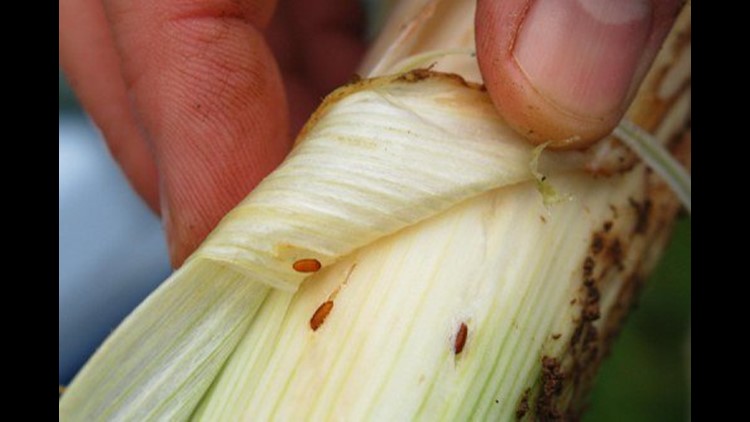Harrisburg, PA – An invasive pest new to the United States was discovered for the first time on a farm in Lancaster County and has been found to have spread to at least four other counties, according to officials at the Pennsylvania Department of Agriculture.
The invasive pest, known as allium leafminer Phytomyza gymnostoma, infects crops such as leeks, onions, garlic, chives, shallots and green onions. While researchers are still working to understand this invasive species, previous research suggests that the pest can be more damaging in organic, non-commercial farms or homeowner gardens.
“For our farmers an infection of this pest could mean a loss in production of allium crops. And for our consumers, this could result in a lack of availability of these crops for consumption,” said Agriculture Secretary Russell Redding. “As we are warning residents of this new invasive species – the allium leafminer, know that there is no risk to public health.”
Covering onion, chive and garlic plants in February, prior to the emergence of adults, and keeping plants covered during spring emergence, can be used to minimize crop exposure to the pest. Delay planting starts until after mid-May for fall allium crops such as leeks, has also been suggested to reduce infestation rates.
Leafminers are most likely transported with commercial cargo or in passenger baggage. There is a high likelihood that leafminers will escape detection at ports of entry.
“There is indication that the movement of plant crops impacted by this pest could result in transport of the pests,” Redding added. “That’s why it is of the utmost importance that we provide education and awareness about the leafminer and stop it from spreading anywhere else in Pennsylvania or beyond our state lines.”
The adult leafminer are about three millimeters in length and appear to be gray or black flies with a distinctive yellow or orange patch on the top and front. The yellow coloring is also present on the side of the abdomen. When resting, the wings are positioned horizontally over the abdomen. The eggs appear white, about 0.5 millimeters in length and slightly curved. The larvae are white, cream or yellowish in color and up to eight millimeters in length.
The adults appear in late winter (around March) into spring (throughout April and possibly May and lay eggs at the base of plant stems. Adult females lay eggs on the base of stems, and emerging larvae mine downwards, feeding on the bulbs. Damage caused by feeding and mining results in softening of the plant parts, increasing susceptibility to bacterial and fungal infections. The leaves of infected plants appear wavy, curled and distorted with a row of white dots.
The allium leafminer is native to Poland and Germany and was first detected in 1850. It is currently present in Europe and has been reported in Asia, Turkey and parts of Russia and Turkmenistan.
Little information is available on the life history of the pest in Pennsylvania. Surveys are ongoing to determine if any other areas of the state have positive detections. The timings for different emergences and life stages are based on the pest’s history in areas of Europe with climates similar to Pennsylvania’s.
Anyone who thinks they may have observed damage or a life stage of the allium leafminer should contact a plant inspector in the regional Department of Agriculture office or Penn State Cooperative Extension. Citizens are urged not to transport any crops suspected of infection, as doing so, will greatly increase the risk of spread of the pest. Adult specimens in counties outside of those listed can also be turned into the department’s Entomology Lab or to the Penn State County Extension Office for identification. Adult specimen can be placed in alcohol or hand sanitizer in a leak proof container. A sample submission form can be located on the entomology page, under Plant Industry, on the Department of Agriculture’s website.
Individuals can also take photos and submit them to Badbug@pa.gov. They can also call the Bad Bug Hotline at 866-253-7189 with details of the siting and contact information.
For more information about the allium leafminer, visit www.agriculture.pa.gov or www.agsci.psu.edu.
Source: Dept of Agriculture press release



